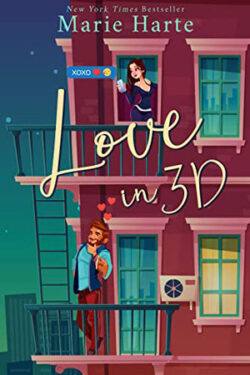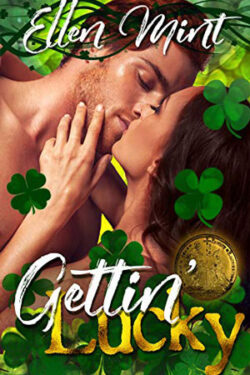Death by Roses by Vivian Probst
For the first time in nearly thirty years of marriage, Art McElroy Sr. buys his headstrong, disapproving wife a dozen yellow roses. Hours later he discovers her lifeless body seated on the toilet. Mae Rose McElroy’s sudden death leaves a void in her family and in the entire Midwestern farming community of Fairview. It’s a void Mae Rose will attempt to fill, herself, from the hereafter by meddling directly in earthly affairs.
Mae Rose’s meddling leads to her spiritual expulsion from heaven, and she winds up in the body of Mary Lee Broadmoor (Scary Mary), a crusty writer and director of exquisite horror movies. Mary Lee refuses to succumb to stage-4 pancreatic cancer until she gets one final shot at an elusive Oscar. Like Mae Rose, who argues with God for a return to earth, Mary Lee pleads, from her Hollywood deathbed, for more time to complete her work, as her hospice nurse, Gertie Morgan, looks on.
The two women’s spirits work together, and Mae Rose provides her host with a new script idea: a love story, based on her life! The script earns Mary Lee her coveted Academy Award, but the movie’s release shocks and disturbs Mae Rose’s family. They set out to find, and confront, the woman who has somehow co-opted, and publicly revealed, their personal tragedy.
Along the way, new love emerges as the reader meets a caste of crazy, eccentric, but highly memorable characters. Death by Roses suggests that relationships don’t end at death, but continue until their ultimate purpose is achieved. The universe has every resource at its disposal to get the job done. It also has an amazing sense of humor
Click here to buy your copy of the book today!
Read An Excerpt:
Excerpt from
DEATH BY ROSES
By Vivian R. Probst
If Mae Rose McElroy had known that by evening she would be dead à la commode after a fit of rage at her husband, she might have made different choices. Of course, if she’d done things differently, she might not have died while sitting on the toilet.
But on that frosty March morning, as she stood by the kitchen window washing breakfast dishes, Mae Rose was preoccupied with the effects of the last night’s storm. Everything glistened in sparkling crystal coats of ice that most would have found beautiful. As she anxiously surveyed the backyard trees, the barn, and the gardens and fields of their farm home, Mae Rose was far from feeling awestruck.
This was because today—of all days—her husband would be driving her meticulously restored 1974 VW Beetle to the mechanic shop where she worked. “Please be very careful, Art,” she said without looking up from the sink, “the roads could be very slippery.”
After thirty years of marriage, Art understood the meaning of Mae Rose’s words. They meant she didn’t trust him and was worrying about her precious car. Her fretting did not dissuade Art from feeling an uncharacteristic joy.
Mae Rose could tell from the noises in the background that he was indeed ecstatic. The hangers clanged merrily as he removed his coat from the closet. Even the zipper sang with an abnormal enthusiasm as he closed his jacket against the cold.
“You know I’ll be careful,” Art replied, planting a dutiful kiss on his wife’s stern cheek. Earlier, while shaving, he had practiced saying “I love you” to Mae Rose. Although her obvious unhappiness made him decide not to attempt it now, nothing—not even his irritation with her remarks—could suppress his buoyant feelings of hope.
It was rare for Art to drive Mae Rose’s car. But once his new client at the shop saw the car’s spectacular restoration, he was certain the man would confirm his intention to pay the large expense of having his own antique Beetle refurbished. And Art hoped for much more—surely his impressive sale would help to renew Mae Rose’s faith in him and their marriage.
Three decades of marriage to Mae Rose had left deep creases across his forehead. Each crease could have been labeled: the upper line for shock at Mae Rose’s intensity, the middle for his resistance to her relentless drive, and the lower for the wavering boundary where Art tried to keep his identity from being discarded as irrelevant.
As he squeezed his tall frame into her car, he put the keys into the ignition and waited patiently for the engine to turn over. It was understandably reluctant, but as if it knew how important the day was, the engine gave in to Art’s persistence. He headed down the long gravel drive, turning left on the two-lane country road with caution.
As the sun melted the icy coating on the asphalt, Art was able to relax and enjoy his drive. Everything glistened in the soft, feathery frost—so breathtaking that Art considered it the best possible omen for a successful day. He couldn’t help that his right hand caressed the leather upholstery he had so lovingly used to recover the seats of Mae Rose’s car; he felt pride, perhaps even a mild flirtation, as he touched the dashboard and turned the radio dial to his favorite oldies rock ‘n’ roll station.
He’d have to remember to turn it back to Mae Rose’s country music station later, but just now he needed to mark his territory. Art loved nothing more than working on old VWs, the only car, he claimed, that possessed a personality all its own, and the possibility of working on another old VW Beetle gave him an unfamiliar sense of exhilaration.
“I’d hammer ‘bout justice!” Peter, Paul, and Mary sang, and Art joined in: “I’d hammer ‘bout freedom! I’d hammer ‘bout the love between,” and Art, who loved to change the words of a song to suit himself, sang, “A man and a Beetle, all over this land!”
As Art brought Mae Rose’s car to an obedient stop at the four-way before proceeding into town, he downshifted through each gear, listening for the purr of pleasure as one cog slid into the next. But today the car growled low and mean as if to remind Art to drive straight through town instead of turning right, as he often had years ago for a cup of coffee and some fornication with Maggie Whitman. Back then, he felt justified in doing this because of Mae Rose’s increasingly insufferable nagging and her proportionately deflated interest in sex.
A trip through Fairview included passing Good Shepherd Presbyterian Church, a cornerstone of the McElroy’s lives. It housed times of great joy: when Art and Mae Rose had married and when they had baptized their son Art Jr., and eight years later, their son John. It radiated with the beauty of Mae Rose at the piano and organ, and more often than not, a flower arrangement she had created adorning the altar. But the church also held their deepest pain in its stone structure as the wounds of Art’s affair had been exposed in quiet confidence to Pastor Frank. The hope of a happy marriage had faded into an ever-sensitive, tender scar.
Excerpted from the book DEATH BY ROSES by Vivian R. Probst. Copyright © 2015 by Vivian R. Probst. Reprinted with permission of SelectBooks. All rights reserved.
Learn more about Death by








